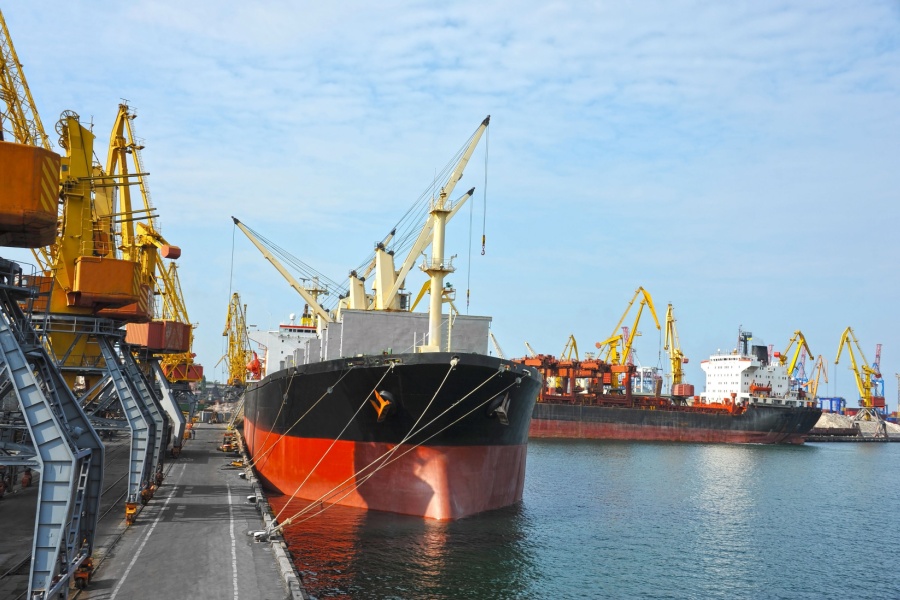Ensuring road safety in airports and seaports is crucial for maintaining smooth operations while protecting the lives of people. A single mistake in asphalt paving, road marking or bitumen application can lead to costly delays, accidents, or even legal penalties.
That’s why project managers overseeing airport and seaport road works must pay close attention to every detail of road construction and maintenance in these critical settings.
Let’s break down the key compliance and safety standards in simple terms and help you see why choosing the right partner for your infrastructure projects is a decision you cannot afford to take lightly.
Challenges in Airport and Seaport Road Safety
Project managers face several distinct hurdles when overseeing roadworks at airports and seaports. For one, these facilities handle immense vehicular traffic, requiring pavements tough enough to withstand the constant weight of aircraft and heavy cargo vehicles.
Environmental conditions also play a significant role: coastal seaports battle against saltwater corrosion, high humidity, and strong winds, while airports contend with diverse weather that can impact visibility and surface grip. These factors directly influence the choice of materials and the frequency of maintenance needed.
Accurate road markings are crucial; a misplaced or faded line can lead to serious safety problems, especially on airport taxiways and in busy port areas. Additionally, the asphalting of roads must be carefully managed to handle these unique operational demands.
Finally, maintaining continuous operations is a major challenge. Unlike typical road projects, which can often divert traffic, airports and seaports operate non-stop. It means road repairs and construction must be carefully planned and carried out to cause as little disruption as possible, often requiring work to be done in stages and timed precisely.

Compliance and Safety Standards for Road Works
Airports and seaports require a higher standard of road construction and maintenance due to the heavy loads of vehicles and their continuous use. Project managers must follow strict guidelines outlined by local government units, the Department of Public Works and Highways (DPWH), and international safety bodies to ensure their road works meet or exceed regulations.
Airport Road Standards
Airports are governed by some of the most stringent safety standards in the world. In the Philippines, for example, the Civil Aviation Authority’s Manual of Standards for Aerodromes (MOS) lays out detailed technical requirements for everything from road markings to pavement quality.
These standards are based on global best practices, including the International Civil Aviation Organization (ICAO) Annex 14, and require certified aerodromes to have a comprehensive Safety Management System (SMS).
Some of the requirements include:
- High-visibility road markings that withstand heavy wear and all weather conditions
- Durable asphalt paving and bitumen use to prevent cracks, potholes, and surface failures
- Regular maintenance and inspections to ensure ongoing compliance and safety
Seaport Road Standards
Seaport roads face unique challenges, such as exposure to saltwater, heavy cargo loads, and round-the-clock operations. The port authority is responsible for ensuring that road conditions, markings, and signage are suitable for both vehicles and pedestrians.
Standards used on public roads often apply, but ports may also have their own stricter guidelines. Focus areas include:
- Proper road markings for safe vehicle and pedestrian movement
- Quality bitumen and asphalt paving to handle heavy loads and resist damage from the marine environment
- Clear signage and speed control to reduce the risk of accidents

Effective Road Marking and Bitumen Application
Effective road marking and bitumen application are fundamental to maintaining safety and functionality at airports and seaports. High-quality, reflective road markings must be accurately placed and consistently maintained to ensure clear visibility under varying conditions. Proper marking helps prevent collisions and confusion in high-traffic zones.
Bitumen application at airports and seaports must address extreme operational and environmental demands. High-grade bitumen should be selected specifically for its resistance to heavy loads, temperature variations, moisture, and saltwater exposure.
Precise application methods and thorough surface preparation are essential for achieving durable, flexible, and skid-resistant surfaces that can withstand continuous heavy traffic and harsh maritime or aviation environments.
Project managers should prioritize consistent monitoring, quality control, and regular maintenance schedules to identify and address potential wear or damage swiftly. To better understand quality bitumen application, explore bitumen concrete uses.
Why Compliance Matters for Project Managers
Making sure road markings and asphalt paving meet all required standards is about protecting projects from various problems. Adhering to legal rules from local groups, such as the DPWH, or international organizations, like CAAP and ICAO, is the best defense against legal trouble, thereby lowering the chances of expensive lawsuits or project halts.
This careful approach greatly lowers the chances of expensive lawsuits, unexpected project halts, or even outright cancellations, helping work move forward smoothly without legal headaches.
Beyond legal protection, compliance directly supports smooth operations. When roads are built and maintained correctly, they last longer, reducing disruptions and ensuring efficient logistics. Ignoring these standards can lead to big financial penalties and delays due to costly re-dos.
Strict compliance makes things much safer and more dependable. This is especially true in busy places like airports and seaports, which handle a large number of heavy vehicles and people. Committing to high-quality roadwork builds confidence among everyone involved and significantly enhances the performance and longevity of the infrastructure over time.
Given how demanding these environments are, selecting a service provider that truly values and consistently delivers top-notch roadwork, like Rua Seguridad, is important.

Secure Your Project’s Success with Rua Seguridad
Ensuring the safety of airport and seaport roads is a critical responsibility that project managers must not overlook. Compliance with rigorous asphalt paving and road marking standards is essential for safe, efficient operations.
Rua Seguridad is the ideal partner for your next project. With a proven track record of expertly delivering asphalt paving and road marking services, it strictly adheres to all safety and compliance standards set by agencies such as CAAP, DPWH, and international bodies.
Rua Seguridad’s use of high-quality bitumen supplies and professional execution gives clients peace of mind. Their products are engineered to withstand heavy traffic, extreme weather conditions, and the unique challenges of airport and seaport environments. It means fewer repairs, less downtime, and lower long-term costs for project managers.
Don’t compromise on safety or quality. Ensure your next project is built on a foundation of reliability and expertise. Contact Rua Seguridad today to learn more about our bitumen products and services and how we can help you pave the way to a safer future.



